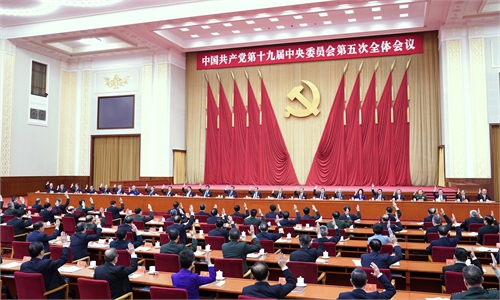COMMENTS / EXPERT ASSESSMENT
Avatar regains box office crown after re-release in China, food for thought for Western businesses

Avatar Photo:VCG
After 12 years, Avatar is back with a surprise second screening in China. It took just two days and four hours for the movie to pass the 100 million yuan box office record, bringing the movie back to the highest-grossing films of all time.
China is probably becoming the biggest market for the film industry, amongst other fields, and it's time for Western businesses to rethink and adjust strategies to win in the thriving Chinese market.
In 2020, China put the COVID-19 epidemic under control faster than most countries and regions, which has, to some extent, accelerated the growth of China to the top of the global box office list. However, besides the pandemic, there are more important reasons paving the way. In the 40 years of reform and opening-up, China has made great achievements including the significant growth in consumer capacity of the 1.4 billion Chinese.
While the sudden coronavirus onslaught triggered a worldwide recession, China has been the only major economy to register growth last year and has stepped up efforts to further activate its colossal domestic market with the dual circulation economic strategy.
It is a crucial opportunity for both domestic and international businesses. With China being the major driving force for global recovery, its potential and stable market is of huge significance for industries during the post pandemic era.
Winning a space in the Chinese market nowadays demands more efforts by businesses, especially foreign firms. In the film industry for instance, the amazing performance of Avatar has proved the huge potential and strong resilience of the Chinese film market. However, Chinese consumers have seen subtle but significant changes.
In 2020, home-produced movies occupied majority of the market, with Chinese traditional culture content winning increasing preference among movie viewers, especially for younger generations who highly advocate Chinese styles. The new Disney-production of Mulan last year was not well received in China as audiences found it had a poor artistic level; besides it was an obvious misunderstanding of the Chinese culture. The blockbuster effect of overseas films has been weakening, and it's not a new trend.
The opening-up of the Chinese market still offers great opportunities for foreign businesses but the new challenges have become more prominent as well. Overseas firms need to better understand the Chinese consumers. The era of foreign movies delivering their own thoughts and views, without adequate understanding of the audience, has passed.
In the meantime, the fact that Avatar is regaining its crown as the best-selling film of all time has offered another perspective to comprehend China's role in the international economic system.
As a leading manufacturing power in the world, China has seen its products selling across the world, making it a vital trading partner for many countries and regions. By fixating on goods trading, however, certain foreign politicians and media outlets have been complaining about their trade deficits with China.
In January, China recorded a trade deficit of 58.1 billion yuan in the service sector, according to China's State Administration of Foreign Exchange. For years, China has been a major consumer of cross-border education and tourism, and has continued to open up its financial market drawing increasing number of financial service giants around the world.
Simply seeking balanced trade is not in line with economic principles as well as the long-term growth of industries. China is a colossal market for both products and services, and how to seize the opportunity of the growing Chinese economy is the real question that foreign businesses needs to think about.
The article was compiled based on an interview with Zhang Yi, CEO of Shenzhen-based iiMedia Research. bizopinion@globaltimes.com.cn


